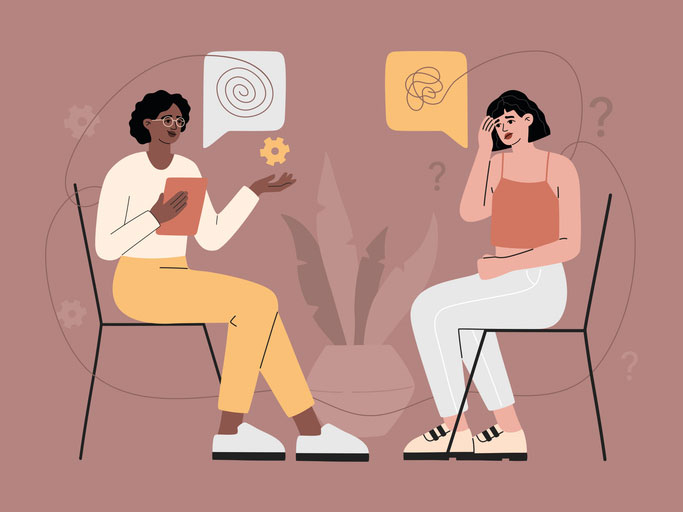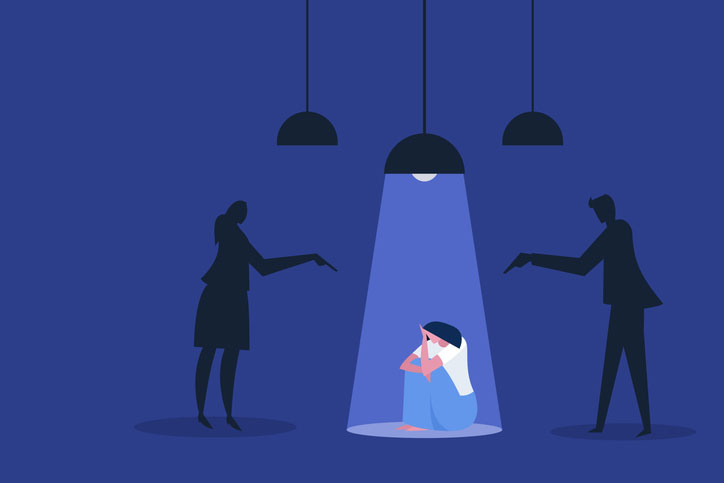Written by Sam Medley
If you were to survey the general population about who they’d turn to for help with their mental health, you’d probably get some predictable answers. Many would respond with a therapist, counselor, or psychologist. Some might also include friends or family. And despite how far we’ve come in destigmatizing mental health, others would say no one at all.
However, few people would list one of the most important mental health professionals today — the Master’s-level social worker. As the National Association of Social Workers (NASW) puts it:
“Most people think of social workers when they think of poverty alleviation and child welfare. Many social workers do that kind of work — and we do much more.”
In fact, according to the Substance Abuse and Mental Health Services Administration, clinically-trained social workers make up the biggest portion of the mental health workforce by a huge margin. But what exactly do they do for individuals and society at large? For answers to that question, there’s perhaps no better place to look than California.
Social Workers Provide Much-needed Culturally-informed Care
In recent years, mental illness has become less of a taboo. A survey conducted by the American Psychological Association (APA) found that 87% of adults think having a mental health disorder isn’t anything to be ashamed of. On top of that, the nation’s youth seem to be shedding the stigma, as well. Roughly 66% of teens say they’re comfortable talking about mental health.
But unfortunately, some of California’s already underserved communities have been left out of the conversation about mental health.

According to the California Chapter of the National Alliance on Mental Illness (NAMI), many of the state’s Latino, Black, Asian-American, and Pacific Islander communities have been left out of the conversation. Only about a third of Black and Latino adults who need treatment seek it. Rates for Asian-Americans and Pacific Islanders are even lower at about 24%. For reference, NAMI says the national treatment-seeking rate is 43%.
Strongly-held cultural beliefs surrounding mental illness are only one reason for this divide. NAMI also says that members of these communities who do seek treatment often encounter language and cultural barriers. This frequently results in misdiagnoses and ineffective treatment. In this context, it’s painfully apparent why stigma persists. However, Licensed Clinical Social Workers are trained to overcome these exact barriers.
LCSWs are Master’s-prepared, state-certified social workers who provide advanced mental and behavioral health services like cognitive-behavioral therapy. They can also diagnose specific mental health issues like anxiety, depression, and PTSD — something no other type of social worker in California can do.
What sets LCSWs apart from other types of mental health professionals is that their training and education is firmly rooted in social justice. They don’t spend all of their time studying techniques. They also typically take classes on social welfare policy, culturally-informed care, and community-based care.
With this background, LCSWs can not only serve individuals, but spread information to families and entire communities through awareness campaigns, community clinics, and more. And in contrast to the predominantly white psychology workforce, recent NASW surveys say that the social work workforce tends to be more diverse:
- Almost a quarter of all new social workers who graduated between 2017 and 2019 are Black. 14% are Hispanic or Latino.
- Over 46% of 2019’s MSW grads were the first in their families to graduate from college.
If these trends continue, more people will be able to seek help from professionals who truly understand their lives and struggles. It may be a long road, but in that kind of environment, the stigma surrounding mental health doesn’t stand a chance.
Where Social Workers Fit in the Mental Health Workforce
With their ability to diagnose and treat an array of mental health issues, LCSWs seem to play similar roles to therapists and psychologists. However, LCSWs typically take a more holistic approach than other types of mental health specialists.
When helping individual patients, LCSWs often:
- Assess clients holistically. While many professionals focus on psychiatric health, LCSWs assess clients’ social, behavioral, and even economic wellbeing.
- Connect clients to other services. As social workers, LCSWs typically seek to address more than one issue at a time. They might help clients find housing programs, childcare, and substance abuse treatment.
- Work closely with other professionals. LCSWs can diagnose mental disorders, but they can’t prescribe medication. To get their clients the help they need, they can refer their clients to professionals who can, help monitor client progress, and seek alternate forms of treatment.
These duties put LCSWs at the center of any mental healthcare team. And due to their training and experience in the human services system, they’re experts in tailoring care to each individual. Some LCSWs work for social service agencies, but they can be found in hospitals, nursing homes, homeless outreach agencies, and running their own practices.
Accessibility and Advocacy: Bringing Holistic Mental Healthcare to All
While California’s diverse communities struggle to find culturally-aware practitioners, the population as a whole struggles with something much more fundamental — access to appropriate mental health services.

As of December 2023, the Kaiser Family Foundation reports that 607 California communities are federally-designated mental health professional shortage areas (HPSAs). By their estimates, it would take almost 700 professionals to fill the gap. Social workers, MSW programs, and state lawmakers are working feverishly to address this crisis.
First, schools and legislators encourage new professionals to work in HPSAs through a variety of financial aid programs. While terms vary, MSW graduates who commit to work in an HPSA can have tens of thousands of dollars in student loans forgiven. These programs cleverly address two issues at once. They funnel talented professionals where they’re needed most and make social work education more accessible to all.
Second, social workers across the state rally around bills that promise to expand mental health resources everywhere. Recently, this advocacy has paid off big time.
In late 2023, the State Senate and Assembly approved two bills that greatly expand and modernize California’s Mental Health Services Act of 2004. If voters get behind these bills when they hit ballots in March 2024:
- The state budget will allocate billions of dollars to build its behavioral health workforce.
- Programs dedicated to children, underserved communities, telehealth services, mobile crisis intervention teams, and more will have the resources to expand.
- There will be over 11,000 more treatment beds available for people suffering from acute mental and behavioral health issues. There will also be almost 27,000 new slots for outpatient services.
- More low-income people could have access to life-saving services.
California’s social workers have been involved at every step. They’ve conducted research and made recommendations to lawmakers. They’ve hit the streets to canvas and raise awareness. And in the months leading up to voting time, they’ll certainly be keeping their cause in the headlines.
If the two bills are passed, the next generation of Master’s-level social workers, no matter their specialities, will have a lot of work to do. It’ll take the efforts of frontline professionals and administrators alike to make these reforms count. But as the newcomers learn their new roles and become leaders, they’ll very likely usher in a new era of equity and openness in mental health.








